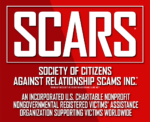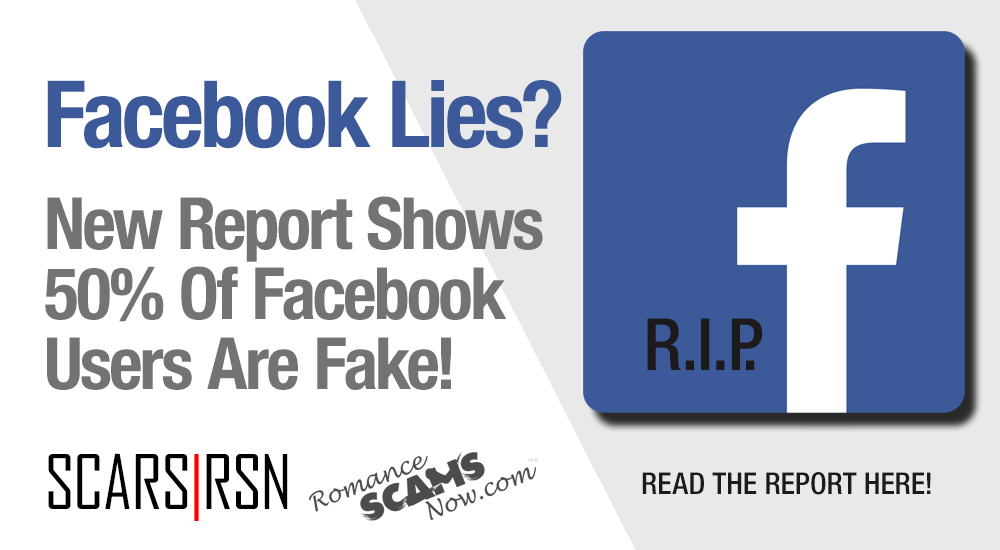SCARS™ Special Report: PlainSite™ Reality Check – Half Of Facebook Are Fakes!
Has Facebook Lied About The Real Number Of Fakes?
PLEASE SHARE THIS IMPORTANT PAGE
In A New Report By Aaron Greenspan Dated January 24, 2019 – Facebook Is Revealed To Have Been Hiding An Incredible Secret!
What seems too good to be true often is. The zeitgeist has changed markedly since 2007, when the company was the obsession of virtually every Silicon Valley investor, having built its Platform to make the world “more open and connected.” Yet as bad as things have been of late for Facebook, with endless privacy breaches and Russian interference in the 2016 presidential election hanging over Menlo Park like a spectre, we believe that the situation is far worse than investors realize. Facebook has been lying to the public about the scale of its problem with fake accounts, which likely exceed 50% of its network. Its official metrics—many of which it has stopped reporting quarterly—are self-contradictory and even farcical. The company has lost control of its own product.
Facebook has been lying to the public about the scale of its problem with fake accounts, which likely exceed 50% of its network. Its official metrics—many of which it has stopped reporting quarterly—are self-contradictory and even farcical. The company has lost control of its own product.
According to PlainSite Reality Check:
Fake accounts affect Facebook at its core in numerous ways:
Its customers purchase advertising on Facebook based on the fact that it can supposedly target advertisements at more than 2 billion real human beings. To the extent that users aren’t real, companies are throwing their money down the drain.
Fake accounts click on advertising at random, or “like” pages, to throw off anti-fraud algorithms. Fake accounts look real if they do not follow a clear pattern. This kind of activity defrauds advertisers, but rewards Facebook with revenue.
Fake accounts often defraud other users on Facebook, through scams, fake news, extortion, and other forms of deception. Often, they can involve governments.
Preaching that programmers should “move fast and break things,” CEO Mark Zuckerberg has clarified over time that growth at any cost is his only priority. But documents recently revealed show that since 2012, management has worried about where it can find more warm bodies to sign on. Fake accounts have been keeping the company that Columbia professor Tim Wu has called an “attention merchant” afloat. The cost of Zuckerberg’s dissembling, dating all the way back to 2004, has accrued, and is finally coming due. Accordingly, it is increasingly likely that Facebook will go the way of AOL, CompuServe, and Prodigy—if legal liability doesn’t bankrupt it first.
Read The Full Report:
Click Here To Read The Report: https://www.plainsite.org/realitycheck/fb.pdf
We Have Little Doubt That This Will Open The Floodgates To Litigation Against Facebook And May Spell The Doom Of The Platform!
Please share your thoughts about this report and the actions of Facebook in our comments below!
Our thanks to PlainSite for their work. A joint venture of Think Computer Corporation and Think Computer Foundation, a 501(c)(3) non-profit organization.
Report Copyright © 2019 Think Computer Corporation. All Rights Reserved.

SCARS™ Team
A SCARS Division
Miami Florida U.S.A.
TAGS: Facebook, Deception, Fakes, Fake Profiles, Litigation, Doom, History of Facebook, Facebook Facement Management, Mark Zuckerberg, Platform, Class Action, Victims, Shareholders, Securities Fraud, Advertising Fraud, Advertisers, Active Users,
END
– – –
Tell us about your experiences with Romance Scammers in our Scams Discussion Forum on Facebook »
– – –
FAQ: How Do You Properly Report Scammers?
It is essential that law enforcement knows about scams & scammers, even though there is nothing (in most cases) that they can do.
Always report scams involving money lost or where you received money to:
- Local Police – ask them to take an “informational” police report – say you need it for your insurance
- Your National Police or FBI (www.IC3.gov »)
- The SCARS|CDN™ Cybercriminal Data Network – Worldwide Reporting Network HERE » or on www.Anyscam.com »
This helps your government understand the problem, and allows law enforcement to add scammers on watch lists worldwide.
– – –
Visit our NEW Main SCARS Facebook page for much more information about scams and online crime: www.facebook.com/SCARS.News.And.Information »
To learn more about SCARS visit www.AgainstScams.org
Please be sure to report all scammers HERE » or on www.Anyscam.com »
All original content is Copyright © 1991 – 2020 SCARS All Rights Reserved Worldwide & Webwide – RSN/Romance Scams Now & SCARS/Society of Citizens Against Relationship Scams are all trademarks of Society of Citizens Against Relationship Scams Incorporated (formerly the Society of Citizens Against Romance Scams)
Legal Notices:
All original content is Copyright © 1991 – 2020 SCARS All Rights Reserved Worldwide & Webwide. Third-party copyrights acknowledge.
SCARS, RSN, Romance Scams Now, SCARS|WORLDWIDE, SCARS|GLOBAL, SCARS, Society of Citizens Against Relationship Scams, Society of Citizens Against Romance Scams, SCARS|ANYSCAM, Project Anyscam, Anyscam, SCARS|GOFCH, GOFCH, SCARS|CHINA, SCARS|CDN, SCARS|UK, SCARS Cybercriminal Data Network, Cobalt Alert, Scam Victims Support Group, are all trademarks of Society of Citizens Against Relationship Scams Incorporated.
Contact the law firm for the Society of Citizens Against Relationship Scams Incorporated by email at legal@AgainstScams.org





I am on FB dating website n I have across of man’s profile in different names n I have FB n blocked them n the profile is gone n a couple of days later the same photo shows up with name n profile n I have block that picture yet it gets through. So now when try to block someone it doesn’t let me it says something about an error that’s not me is them FB
This is most likely a browser cache problem. Try deleting your browser history to resolve.
The bigger question is why are you looking for someone on Facebook? Over half of all profiles on Facebook are going to fake. This is as dangerous as hitchhiking on a deserted road! You are only going to meet scammers. Strangers online ARE NOT SAFE.
Facebook has not reacted to any of my fraudulent reports for a long time. What is important for him is to have a maximum of registrants because it is his turnover that counts the most. There may be twenty accounts that follow with the same pictures, names with various names, FB does not care. None of my reports were taken into account. No security works, no care to clean the fraudsters.
It can take as many as 10 reports on a given profile before FB responds and removes the account. It takes an ARMY – we have one, want to join? https://www.facebook.com/groups/RSN.Army/
Facebook has no care at cleaning up scammers me and many of my friends have reported that the treport and block button doesnt work and no matter hiw many times we reporr on these familiar faces its like we havent we can go back many times and report on them and go back and report on them numerous times they dont give a damn if they taje over facebook
What is really bad i have really had a problem me and group of women with report and block women its is like they can block us from reporting them on fb me and the ladies have reported this numerous times and they don’t listen to us we have a 100 profiles that we have reported on so many times and. We continue to report on thesw familiar stolen faces but it does us no good and i let fb know they want scammers to take over they don’t give a damn and don’t have a clue to know what to do about this problem